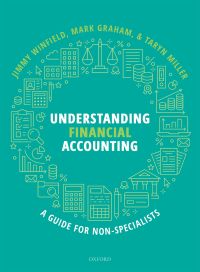Answered step by step
Verified Expert Solution
Question
1 Approved Answer
Case Study: Preferred Stock Rights and Sacrifices Background: Preferred stock is a distinctive class of equity that offers certain advantages to shareholders in exchange for

Case Study: Preferred Stock Rights and Sacrifices Background: Preferred stock is a distinctive class of equity that offers certain advantages to shareholders in exchange for sacrificing specific rights commonly associated with common stock. This case study explores the preferences and sacrifices made by holders of preferred stock, emphasizing the trade-offs inherent in their unique position within a company. Scenario: XYZ Corporation, a publicly traded company, has recently issued preferred stock to raise capital for its expansion initiatives. The holders of preferred stock are granted certain preferences over common shareholders, but these come at the cost of sacrificing traditional rights. Analysis of Options: A. The right to share in the residual assets of the company upon liquidation. Explanation: Preferred stockholders usually sacrifice the right to share in the residual assets during liquidation. Their claim is prioritized up to a predetermined amount before common shareholders can access the remaining assets. Scenario: In the event of XYZ Corporation liquidating its assets, preferred stockholders would receive their predetermined share before common shareholders access any residual assets. B. The right to accrue dividend payments in arrears when payments are not made for a period of time. Explanation: Accumulating dividends in arrears is a characteristic of cumulative preferred stock. If dividend payments are missed, they accrue and must be paid before common shareholders receive dividends. Scenario: If XYZ Corporation faces financial challenges and suspends dividend payments, cumulative preferred stockholders retain the right to accumulate unpaid dividends, ensuring they are compensated once the financial situation improves. C. The right to vote for members of the board of directors and in other matters requiring a vote. Explanation: Preferred stockholders often sacrifice or have limited voting rights. Governance decisions are primarily in the hands of common shareholders. Scenario: During a shareholder vote on key matters, common shareholders have more substantial voting influence compared to preferred stockholders, allowing them a more active role in the company's decision-making. D. The right to share in the periodic earnings of the company through the receipt of dividends. Explanation: While preferred stockholders have the right to receive dividends, the amount is fixed or calculated at a predetermined rate, potentially limiting their participation in additional earnings. Scenario: Preferred stockholders of XYZ Corporation receive a stable dividend, but if the company experiences exceptional profitability, they might not fully participate in the additional dividends declared beyond the agreed-upon rate. Question:1 Considering the sacrifices made by preferred stockholders, what is a primary benefit they typically enjoy over common shareholders? Enhanced Voting Rights Fixed Dividend Payments Residual Asset Claims Participating in Earnings Beyond a Fixed Rate
Step by Step Solution
There are 3 Steps involved in it
Step: 1

Get Instant Access to Expert-Tailored Solutions
See step-by-step solutions with expert insights and AI powered tools for academic success
Step: 2

Step: 3

Ace Your Homework with AI
Get the answers you need in no time with our AI-driven, step-by-step assistance
Get Started


